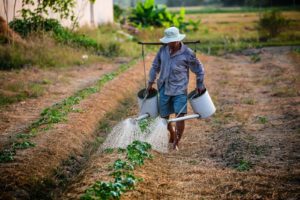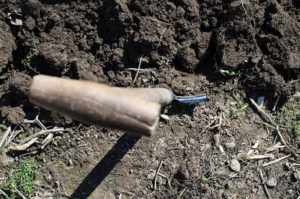Farming is a niche work opportunity making it difficult for farmers to find good employees. Hiring migrant farm workers is a solution that many farmers turn to, however, there are federal and provincial laws that can make this hiring practice more complex than others. For those farmers who have navigated this process, it has been very helpful for their farm operations, and in many cases they end up with hardworking, excellent staff.
Now, let’s take a deeper look at the requirements for hiring migrant farm workers in Ontario.
Meeting the Requirements to Hire Migrant Farm Workers in Ontario
The first requirement a farmer should know before bringing in migrant farm workers to Ontario is that the occupation and activity must be related to primary agriculture. The Government of Canada defines this as:
- The work is performed within the boundaries of a farm, nursery or greenhouse
- The work involves at least one activity, such as:
- operation of agricultural machinery
- boarding, care, breeding, sanitation or other handling of animals, other than fish, for the purpose of obtaining raw animal products for market
- collection, handling and assessment of those raw products, or the planting, care, harvesting or preparation of crops, trees, sod or other plants for market
- The work is consistent with a National Occupational Classification code related to the industry.
Secondly, a farmer must also consider one of four different hiring streams for a migrant farm worker in Canada:
- Seasonal Agricultural Worker Program: the migrant farm worker must be from Mexico or the participating Caribbean countries, and production must be included on the National Commodities List.
- Agricultural stream: the migrant farm worker can be from any country, and production must be included on the National Commodities List.
- Stream for high-wage positions: production is not included on the National Commodities List and the migrant farm worker can be hired for any high-wage agricultural position.
- Stream for low-wage positions: production is not included on the National Commodities List, and the migrant farm worker can be hired for a low-wage agricultural position.
If your farm operation meets the requirements outlined above, then you are eligible to hire immigrant farm workers. It’s necessary to highlight one key distinction that you won’t find with hiring Canadian workers -- housing. You must provide migrant workers with adequate, suitable and affordable housing. This housing can either be on-farm, i.e. a bunkhouse or off-site, and must pass an inspection from an approved provincial/municipal body or by an authorized private inspector.
The next requirement is health and safety. As with any employee, it is essential that migrant farm workers are aware of the health and safety plan at your farm and understand their obligations and yours with respect to that plan. The farmer must ensure that all migrant farm workers are registered for provincial health insurance as soon as they become eligible according to the Ministry of Health’s guidelines.
Lastly, an employment contract must be created and sent to Service Canada along with the Labour Market Impact Assessment (LMIA) application to prove that the business and job offer is legitimate. The migrant farm work must then pay for their work permit directly to Immigration, Refugees and Citizenship Canada.
What is the Labour Market Impact Assessment?
The LMIA is required before hiring a migrant farm worker. A positive LMIA will show that there is a need for a foreign worker to fill the job. It will also show that no Canadian worker is available to do the job. This assessment must prove that all requirements have been met and then sent to Service Canada to facilitate the hiring process. The documents to submit include:
- LMIA application form (EMP5389)
- Employment contract
- Proof of business legitimacy
- Proof of advertisement, applicable in most cases
- Copy of signed off-site housing contract, if applicable
- Housing inspection report
- Transfer contract for migrant farm workers, if the employee has been transferred from one farm to another
Fair Wages for Migrant Farm Workers
Now let’s talk dollars. Many farmers are surprised to know that they must provide migrant farm workers with the same wages and benefits as those provided to Canadian and permanent resident employees in the same occupation. If they are working in a unionized environment , they must be paid the wage rate as per the collective bargaining agreement.
If you plan to hire migrant farm workers in non-livestock high-skilled positions, consult the streams for high-wage or low-wage positions to determine the wage. The wage tables listed on the government’s website are also helpful for further guidance.
Consult with a Lerners Agricultural Lawyer
If you are considering hiring migrant farm workers in Ontario, the Lerners LLP Agricultural Law Group can work with you to create the necessary legal documents and ensure the process is followed correctly. For more information, please contact us at: 519-672-4510.
References:
https://www.canada.ca/en/employment-social-development/services/foreign-workers/agricultural.html








